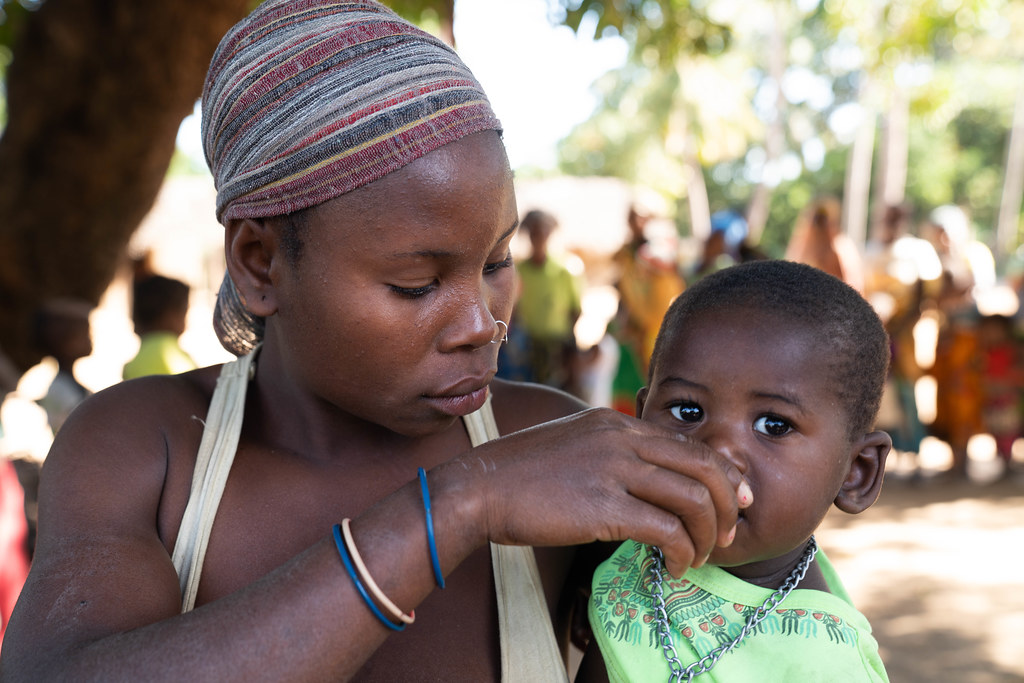This article focuses on the topic of children’s health, providing a wealth of information on various health issues that can affect children. From anxiety and asthma to chickenpox and constipation, this comprehensive guide covers a wide range of topics. One specific area that is addressed in this article is coughs and colds in children, offering effective remedies and strategies to alleviate these common ailments. In addition to the informative content, readers also have access to a symptom checker and a health service finder tool, ensuring they can receive the appropriate care for their child’s specific needs.
Overview of Coughs and Colds in Children
Coughs and colds are common respiratory illnesses that affect children worldwide. These conditions are usually caused by viruses and can cause discomfort and inconvenience for both the child and their parents. It is important to understand the prevalence, causes, symptoms, and when to seek medical help for coughs and colds in children.
What are coughs and colds?
Coughs and colds are respiratory infections that primarily affect the nose, throat, and lungs. They are usually caused by viruses, such as the common cold virus or influenza virus. Coughing and sneezing are common symptoms of these infections, and they can be accompanied by a runny or stuffy nose, sore throat, headache, and mild fever.
Prevalence of coughs and colds in children
Coughs and colds are extremely common in children, especially those who attend school or daycare where they are exposed to numerous other children and their potential illnesses. On average, children may experience 8 to 12 colds per year, with symptoms lasting for about 7 to 10 days. This high prevalence can be attributed to the fact that children’s immune systems are still developing, making them more susceptible to viral infections.
Causes of coughs and colds in children
As mentioned earlier, coughs and colds in children are primarily caused by viral infections. These viruses are highly contagious and can spread through respiratory droplets when an infected person coughs or sneezes. They can also be spread through contaminated surfaces, such as toys or doorknobs, which children often come into contact with.
Symptoms of coughs and colds in children
The symptoms of coughs and colds in children can vary from mild to more severe. Common symptoms include a runny or stuffy nose, sneezing, coughing, sore throat, mild fever, and general discomfort. Younger children may also experience irritability, decreased appetite, and disrupted sleep patterns due to their illness.
When to seek medical help
In most cases, coughs and colds in children can be managed at home with appropriate care and remedies. However, there are certain circumstances when it is important to seek medical help. These include difficulty breathing, high fever, persistent coughing, severe sore throat, ear pain, or any other concerning symptoms that do not improve with home care.

Prevention and Healthy Habits
Preventing coughs and colds in children is always better than treating them. By adopting healthy habits and implementing preventative measures, parents can reduce the risk of their child contracting these viral infections.
Importance of prevention
Prevention is crucial when it comes to coughs and colds in children. By following simple measures, such as proper hand hygiene, respiratory etiquette, and maintaining a healthy lifestyle, parents can significantly reduce the chances of their child getting sick.
Teaching children proper hand hygiene
One of the most effective ways to prevent the spread of viruses is by teaching children proper hand hygiene. This includes regular handwashing with soap and water for at least 20 seconds, especially before eating and after using the toilet. If water is not available, alcohol-based hand sanitizers can be used.
Encouraging good respiratory etiquette
Children should be taught to cover their mouth and nose with a tissue or their elbow when coughing or sneezing. This helps prevent the spread of respiratory droplets containing viruses. It is important to emphasize the importance of disposing of used tissues properly and avoiding close contact with others when experiencing symptoms of a cough or cold.
Maintaining a healthy lifestyle to prevent illness
A healthy lifestyle plays a significant role in preventing illness. Parents should encourage their children to eat a balanced diet, rich in fruits and vegetables, to boost their immune system. Regular exercise, plenty of sleep, and reducing stress can also contribute to overall wellness and reduce the risk of viral infections.
The role of vaccinations
Vaccinations are an essential part of preventing coughs and colds in children. Immunizations protect children against specific viruses, such as those causing influenza or pertussis (whooping cough). It is important to follow the recommended vaccination schedule and ensure that children receive all their necessary shots to prevent these illnesses.

Natural Home Remedies
While prevention is key, it is inevitable that children may still develop coughs and colds at some point. In such cases, there are several natural home remedies that can help alleviate symptoms and promote comfort during their recovery.
Steam inhalation
Steam inhalation can help relieve congestion and soothe the respiratory tract. This can be achieved by having the child sit in a bathroom with the shower running hot water or by using a humidifier specifically designed for steam inhalation. Taking precautions to prevent burns is important when using this method.
Hydration and warm fluids
Keeping children hydrated is crucial during coughs and colds. Encouraging them to drink plenty of fluids, such as water, warm herbal teas, and clear broths, can help soothe their throat and alleviate congestion. Avoiding sugary or caffeinated beverages is important as they can cause dehydration.
Honey and herbal teas
Honey has long been used as a natural remedy for coughs and sore throats. For children over the age of one, a teaspoon of honey, preferably organic and raw, can be given before bedtime to help suppress coughing and improve sleep. Herbal teas, such as chamomile or peppermint, can also be soothing and provide relief.
Saltwater gargle
For children over the age of four, a saltwater gargle can help alleviate throat discomfort. Mixing half a teaspoon of salt in warm water and having the child gargle the mixture for 30 seconds before spitting it out can provide temporary relief.
Nasal saline drops
Nasal saline drops or sprays can be used to help relieve nasal congestion in children. These can be purchased over-the-counter or made at home by mixing a quarter to a half teaspoon of salt in a cup of lukewarm water. Administering a few drops in each nostril can help loosen mucus and ease breathing.
Proper rest and sleep
During coughs and colds, it is important for children to get proper rest and sleep to aid in their recovery. Ensuring that they have a comfortable and quiet environment, with a slightly elevated head to help with congestion, can promote restful sleep.
Elevating the head
Elevating the head of the child’s bed or placing an extra pillow under their head can help reduce nasal congestion and facilitate better breathing during sleep. This can be particularly helpful for children who experience post-nasal drip or congestion at night.
Using a humidifier
Dry air can worsen symptoms of coughs and colds, especially nasal congestion. Using a cool mist humidifier in the child’s room can increase humidity levels and provide relief. It is important to clean the humidifier regularly to prevent the growth of molds or bacteria.
Eucalyptus oil and vapor rubs
Eucalyptus oil can be added to a humidifier or vaporizer to help relieve congestion and promote better breathing. However, it is essential to follow the recommended dosage instructions and ensure the oil is safe for children. Vapor rubs, specifically formulated for children, can also be applied to the chest or back to help alleviate congestion.
Steamy showers
Taking a steamy shower or spending time in a steam-filled bathroom can help loosen mucus and relieve congestion in children. The warm and moist environment can facilitate easier breathing and provide temporary relief from coughs and colds.

Over-the-Counter Medications
Over-the-counter medications can be considered when home remedies alone are not sufficient in relieving the symptoms of coughs and colds in children. It is important for parents to understand the types of medications available, choose the appropriate one for their child’s symptoms, administer the correct dosage, and be aware of potential risks and side effects.
When to consider over-the-counter medications
Over-the-counter medications may be considered when children are experiencing moderate to severe symptoms of coughs and colds that are significantly impacting their comfort and daily activities. These medications can help alleviate symptoms such as coughing, congestion, and sore throat.
Types of cough and cold medications for children
There are several types of over-the-counter cough and cold medications available for children. These include cough suppressants, expectorants, antihistamines, decongestants, and pain relievers. It is important to read labels carefully and choose medications specifically formulated for children in the appropriate age range.
Choosing the right medication for your child
When selecting an over-the-counter medication for a child, it is important to consider their age, symptoms, and any pre-existing medical conditions they may have. Some medications may not be suitable for young children or individuals with certain health conditions. Consulting a healthcare professional or pharmacist can help guide parents in choosing the appropriate medication.
Proper dosage and administration
Administering the correct dosage of over-the-counter medications is crucial to ensure effectiveness and reduce the risk of adverse effects. Dosages should be determined based on the child’s age and weight, and parents should always follow the recommended guidelines provided on the medication packaging or as directed by a healthcare professional.
Potential risks and side effects
While over-the-counter medications can be helpful in alleviating symptoms, they also carry potential risks and side effects. These can include drowsiness, dizziness, upset stomach, allergic reactions, and interactions with other medications. It is important for parents to be aware of these risks and exercise caution when using these medications.

Prescription Medications
In some cases, coughs and colds in children may require treatment with prescription medications. These medications are typically recommended when home remedies and over-the-counter options are not providing sufficient relief or when there are complications related to the illness.
When prescription medications may be necessary
Prescription medications may be necessary for children when they have severe symptoms or complications related to their coughs and colds. This can include persistent high fever, severe coughing fits, difficulty breathing, or bacterial infections such as bronchitis or pneumonia.
Commonly prescribed medications for coughs and colds
Prescription medications for coughs and colds in children may include antibiotics for bacterial infections, antiviral medications for specific viral infections, corticosteroids to reduce inflammation in the airways, or bronchodilators to help open up the airways and improve breathing.
Consulting a healthcare professional
Prescription medications for coughs and colds should always be prescribed and overseen by a healthcare professional. Parents should consult their child’s pediatrician or primary care provider to discuss the symptoms, receive an accurate diagnosis, and determine the most appropriate course of treatment.
Understanding potential risks and benefits
As with any medications, prescription medications for coughs and colds carry potential risks and benefits. It is important for parents to fully understand the potential side effects and any precautions associated with these medications. This can help them make informed decisions and ensure the safety and well-being of their child.
Monitoring for any adverse reactions
When a child is prescribed a medication for their coughs and colds, it is important for parents to closely monitor their child for any adverse reactions or side effects. This can include allergic reactions, changes in behavior or mood, worsening symptoms, or any other concerning effects. Promptly reporting any adverse reactions to the healthcare professional is essential.

Professional Medical Treatments
In certain situations, professional medical treatments may be necessary to manage coughs and colds in children. These treatments are typically administered in a healthcare setting and require the expertise of healthcare professionals.
When to consider medical treatments
Medical treatments for coughs and colds in children may be necessary when home remedies, over-the-counter medications, and prescription medications have not provided sufficient relief or when the child’s condition worsens. This can include severe respiratory distress, persistent high fever, or complications such as pneumonia or bronchitis.
Nebulizer treatments
Nebulizer treatments involve the use of a machine that converts liquid medication into a fine mist that can be inhaled directly into the lungs. This method is commonly used to deliver bronchodilators or corticosteroids to children with respiratory illnesses, such as asthma or bronchiolitis.
Cough suppressants and expectorants
Cough suppressants and expectorants may be administered by healthcare professionals to manage persistent or severe coughing in children. Cough suppressants help reduce the frequency or intensity of coughing, while expectorants help thin and loosen mucus, making it easier to cough up.
Antihistamines and decongestants
Antihistamines and decongestants may be prescribed to children with severe nasal congestion or allergic symptoms related to their coughs and colds. Antihistamines help relieve allergy symptoms, such as sneezing or itching, while decongestants help reduce nasal swelling and congestion.
Steroids for severe cases
In severe cases of coughs and colds, such as bronchitis or croup, healthcare professionals may prescribe corticosteroids to reduce airway inflammation and improve breathing. These medications may be administered orally, by injection, or through inhalation, depending on the severity and type of respiratory illness.
Intravenous fluids for dehydration
In some cases, children with coughs and colds may become dehydrated due to fever, excessive coughing, or poor fluid intake. Healthcare professionals may administer intravenous fluids to ensure adequate hydration and replace any fluid losses.

Supportive Care and Comfort Measures
Supportive care and comfort measures are important aspects of managing coughs and colds in children. These measures can help alleviate discomfort, promote comfort, and aid in the child’s recovery.
Creating a comfortable environment
Creating a comfortable environment for the child can contribute to their overall well-being and recovery. This can include providing a clean and cozy space, adjusting room temperature to a comfortable level, and minimizing exposure to irritants such as cigarette smoke or strong odors.
Using saline nasal sprays
Saline nasal sprays can help relieve nasal congestion in children by moisturizing the nasal passages and reducing irritation. These sprays are generally safe for children and can be used as needed to alleviate symptoms.
Offering warm liquids and soups
Warm liquids such as herbal teas, clear broths, or warm water with a squeeze of lemon can help soothe a sore throat and provide hydration. Offering warm soups or nutritious beverages can also provide nourishment and comfort to children during their illness.
Providing throat lozenges or popsicles
Throat lozenges or popsicles can provide temporary relief from sore throat discomfort in children. It is important to ensure that these products are age-appropriate and do not pose a choking hazard for young children.
Using non-medicated chest rubs
Non-medicated chest rubs, such as petroleum jelly or mentholated creams, can be applied to the child’s chest or back to help relieve congestion and promote easier breathing. These topical treatments provide a soothing sensation without the use of medication.
Encouraging proper nutrition and hydration
During coughs and colds, it is important to ensure that children maintain proper nutrition and hydration. Offering a balanced diet with nutrient-rich foods, including fruits, vegetables, and whole grains, can support their immune system and aid in their recovery. Adequate hydration should also be encouraged to prevent dehydration.

When to Seek Medical Attention
While many cases of coughs and colds in children can be managed at home, there are certain situations that warrant medical attention. Recognizing the red flags, signs of complications, and persistent symptoms is crucial for parents to ensure the safety and well-being of their child.
Red flags indicating a need for urgent medical attention
Certain red flags indicate a need for urgent medical attention when a child is experiencing coughs and colds. These include severe difficulty breathing, bluish discoloration of the lips or face, severe lethargy or unresponsiveness, or signs of dehydration such as decreased urine output or excessive thirst.
Signs of complications
Coughs and colds can sometimes lead to complications, especially in young children or those with underlying health conditions. Signs of potential complications include high fever that persists for several days, severe headache, chest pain, persistent vomiting, ear pain, or worsening symptoms despite home care.
Persistent symptoms requiring medical evaluation
If a child’s symptoms persist or worsen despite home remedies, over-the-counter medications, or prescribed treatments, it is important to seek medical evaluation. This can include symptoms such as prolonged or recurring fever, severe coughing or wheezing, persistent sore throat, or any other concerning symptoms that do not improve within a reasonable time frame.
Safety precautions for babies and young children
Babies and young children require special attention and precautions when it comes to managing coughs and colds. It is important to closely monitor their symptoms, ensure proper hydration and nutrition, and maintain a comfortable environment to prevent complications. Parents should consult a healthcare professional for guidance on managing coughs and colds in this age group.

Tips for Soothing a Child’s Discomfort
When a child is experiencing discomfort due to coughs and colds, there are several tips that can help provide relief and soothe their symptoms.
Using a cool mist humidifier
A cool mist humidifier can help add moisture to the air and alleviate nasal congestion and dryness. Running a humidifier in the child’s room, especially during sleep, can promote comfort and ease breathing.
Offering throat lozenges or popsicles
Throat lozenges or popsicles can provide temporary relief from sore throat discomfort. It is important to ensure that these products are age-appropriate and do not pose a choking hazard for young children.
Using saline nasal sprays or drops
Saline nasal sprays or drops can help relieve nasal congestion in children. Administering a few drops or sprays in each nostril can help moisten and clear the nasal passages, making breathing easier.
Using non-medicated chest rubs
Non-medicated chest rubs, such as petroleum jelly or mentholated creams, can be gently massaged onto the child’s chest or back to help relieve congestion and promote easier breathing. These topical treatments provide a soothing sensation without using medication.
Encouraging rest and relaxation
During coughs and colds, it is important for children to get plenty of rest and relaxation. Encouraging quiet activities, such as reading or listening to soft music, can help support their recovery and reduce the strain on their respiratory system.

Conclusion
Prompt and appropriate treatment is crucial when it comes to managing coughs and colds in children. By understanding the causes, symptoms, and available remedies, parents can effectively alleviate their child’s discomfort and support their recovery. Prevention through healthy habits, natural home remedies, over-the-counter and prescription medications, professional medical treatments, supportive care, and recognizing when to seek medical attention are all important aspects of managing coughs and colds in children. By implementing these strategies, parents can help their children stay healthy and minimize the impact of coughs and colds on their well-being.
